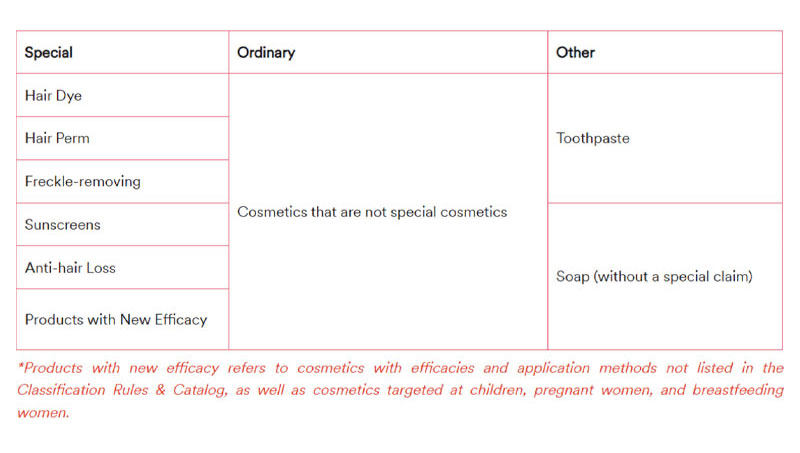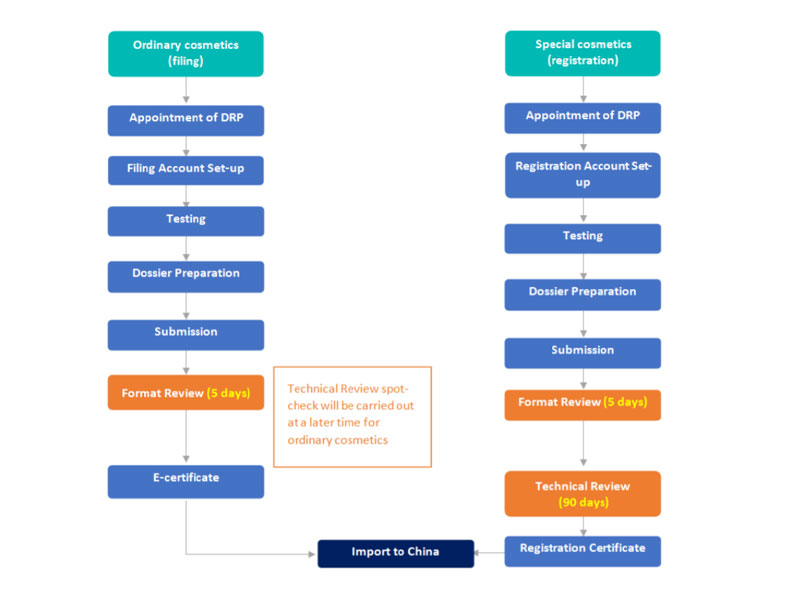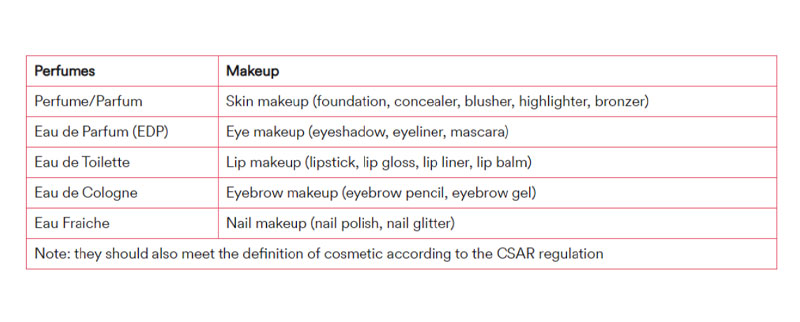They are considered cosmetic products in China because they meet the definition of cosmetic according to the overarching Cosmetic Supervision and Administration Regulation (CSAR), implemented in 2021 by the National Medical Products Administration (NMPA).
According to the regulation, cosmetics are defined as daily chemical industrial products applied to skin, hair, nails, lips, and other human surfaces by scrubbing, spraying, or other similar methods for the purpose of cleansing, protecting, beautifying, and modifying.
The management process for importing perfume and makeup products is determined by their classification in China. In general, these products are classified as ordinary cosmetics but certain claims such as SPF protection or use on children/infants may result in a special classification. Perfume and makeup products without special claims are considered ordinary cosmetics and are subject to filing management. Those with special claims require registration management.

An important consideration for overseas companies based in the EU is whether they have a legal entity based in mainland China or a domestic responsible person (DRP). This is a mandatory requirement of the regulation.
The DRP should meet the following conditions:
- Be a registered legal entity in mainland China.
- Have a business license in the scope of cosmetics and relating to import/export.
Filing/Registration of Perfume and Makeup Products in China

Animal Testing Exemption Requirements for Perfume and Makeup Products
For perfume and makeup products without special claims, i.e., Ordinary cosmetics in China, animal testing may be exempted under certain conditions:
- It is classified as ordinary cosmetic.
- GMP certificate issued by the government of the country of origin.
- Safety Assessment Report verifies the safety of the product.
- There are no claims for use by infants and children.
- Product formula only contains ingredients that have passed the three-year monitoring period and have been included in the Inventory of Existing Cosmetic Ingredients(IECIC 2021).
- Filer/Registrant is not subject to supervision by the NMPA.
Reporting the Safety Information of Cosmetic Ingredients to the NMPA
According to the CSAR regulation, the safety information of cosmetic ingredients used in the product formula of perfume and makeup should be reported to the NMPA before applicable deadlines:
There are two ways to report the information:
- Filer/registrant can complete Annex 14 for each cosmetic ingredient and submit with filing/registration dossier.
- The supplier of the cosmetic ingredients responsible for the safety can generate a code on the NMPA safety information platform and share it with downstream filer/registrants.
Practical Tips for Importing Perfume and Makeup Products to China
Create an inventory list of perfume and makeup products manufactured/traded by your company.
Examples of terms used:

Determine the classification in China. In general, perfumes and makeup products are considered ordinary cosmetics but there are some exceptions if they have a special claim.
Examples of special claims for perfume and makeup products include foundation with SPF 30, nail glitter for kids, and SPF lip balm.
- Determine the management type based on the classification: filing management (ordinary) or registration management (special).
- Determine if you have a DRP in China or contact a third party (e.g., CIRS) for this service.
- Consider if waiving animal testing is a priority. Remember, this only applies to ordinary cosmetics which meet certain exemption criteria (see above).
- Check with your raw material suppliers if they have NMPA safety information codes or are willing to share the safety information with you to fill in Annex 14 for each raw material in the product formula.
The market for perfume and makeup products from the EU remains very popular in China. Therefore, companies should be aware of the regulatory requirements before importing to China. Perfume and makeup products are classified as ordinary cosmetics unless they have a special function claim. Their management, be it filing, or registration is subject to their classification. The advantage of filing management includes waiving the animal testing requirement under certain conditions and reducing authority review time before compliantly introducing the products to the Chinese market. If there is a special claim, animal testing is mandatory and a full technical review by the NMPA is required before import and sale to China.
